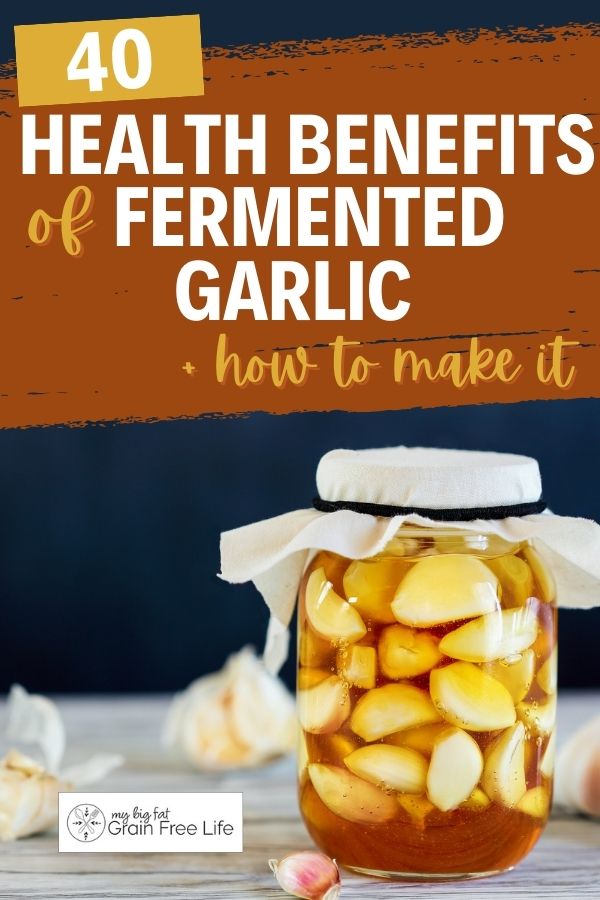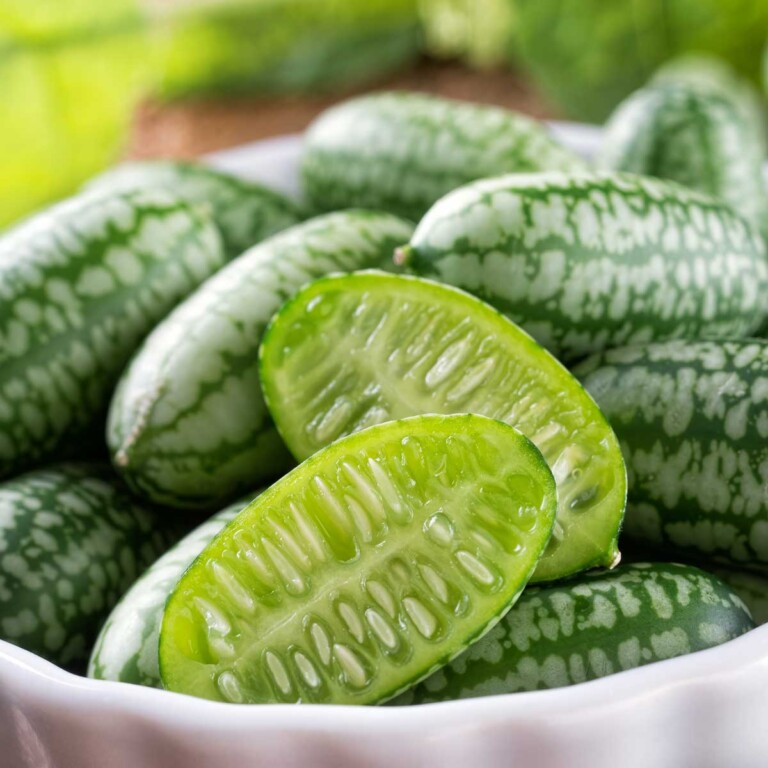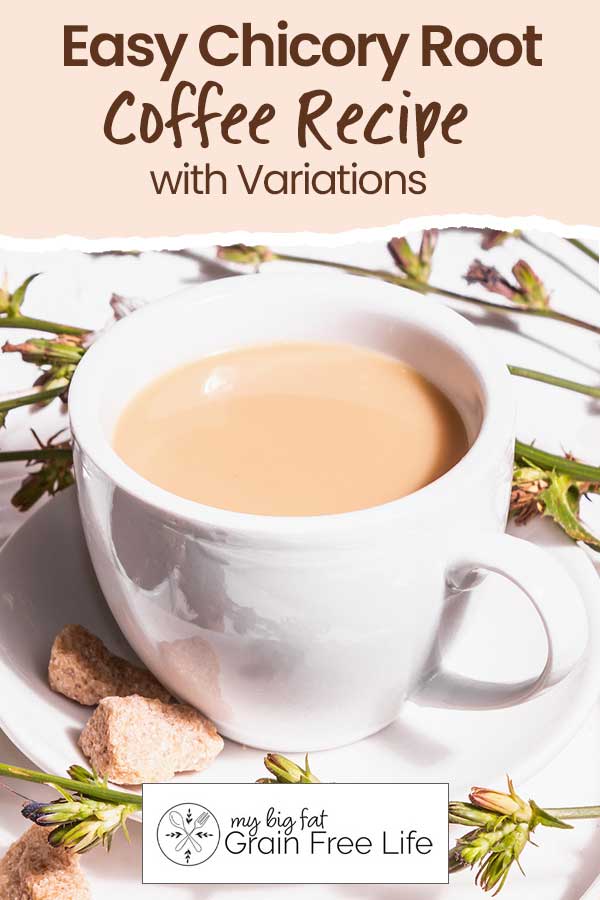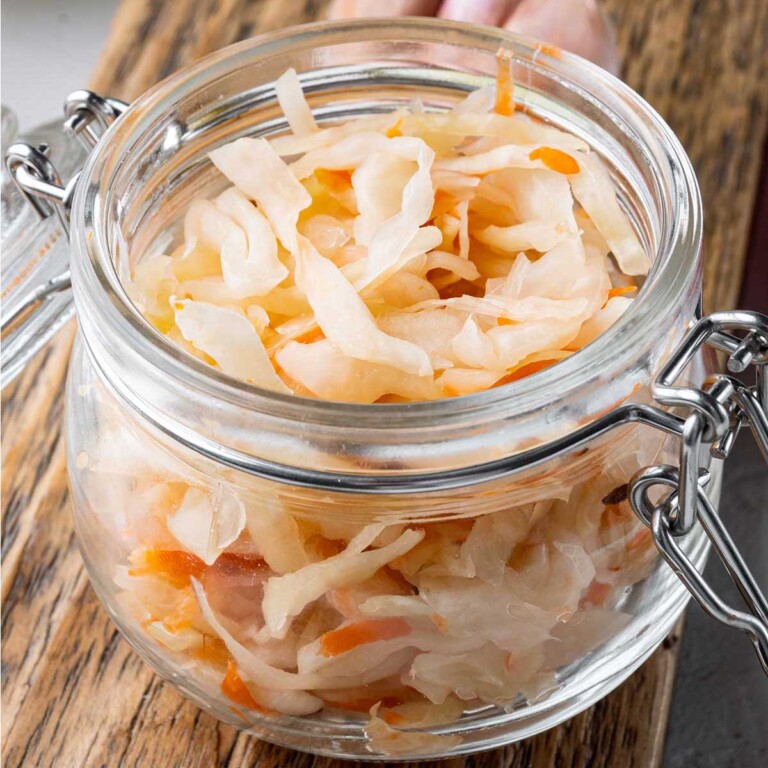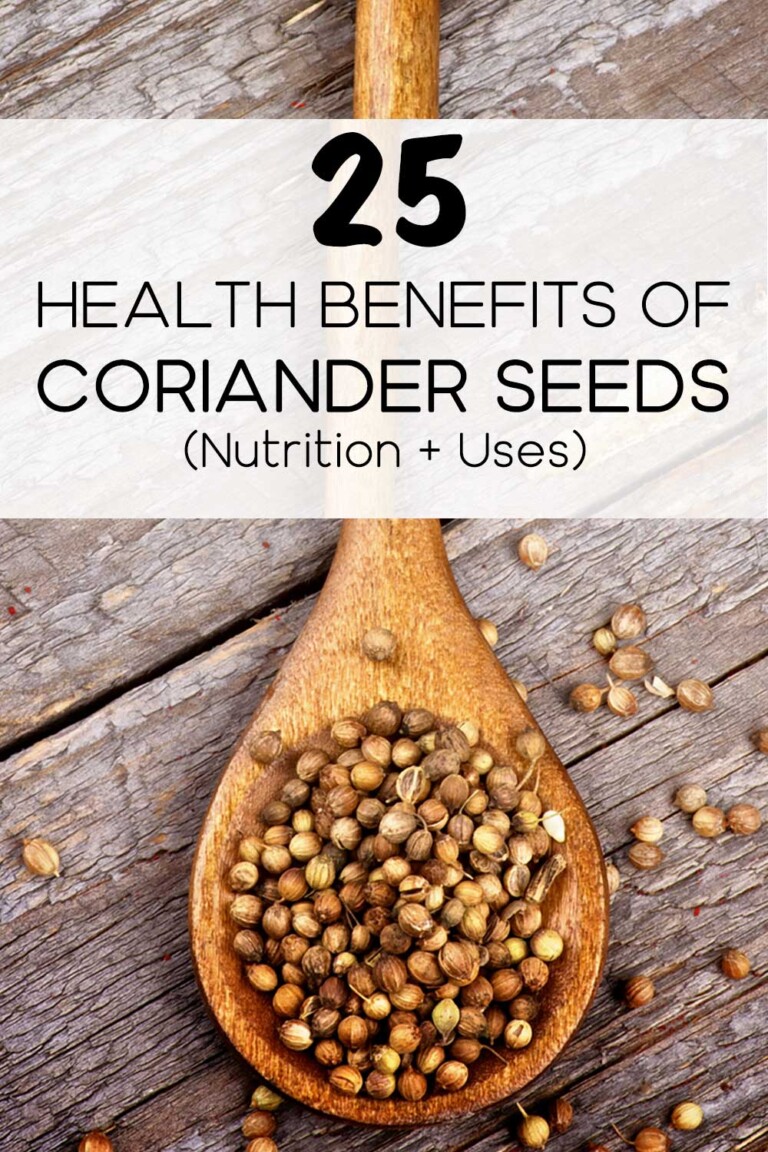How to Tell if Ginger Has Gone Bad (Best Storage Tips)
This post may contain affiliate links. If you make purchase after clicking a link, I may receive a commission at no extra cost to you.
Last Updated on April 25, 2023
Ginger is known for bringing lots of flavor and heat to dishes and is often used in Asian cuisine. It’s affordable to buy fresh, but it doesn’t last forever. Read on to learn how to tell if ginger has gone bad. You’ll also learn the best ways to store your fresh ginger.
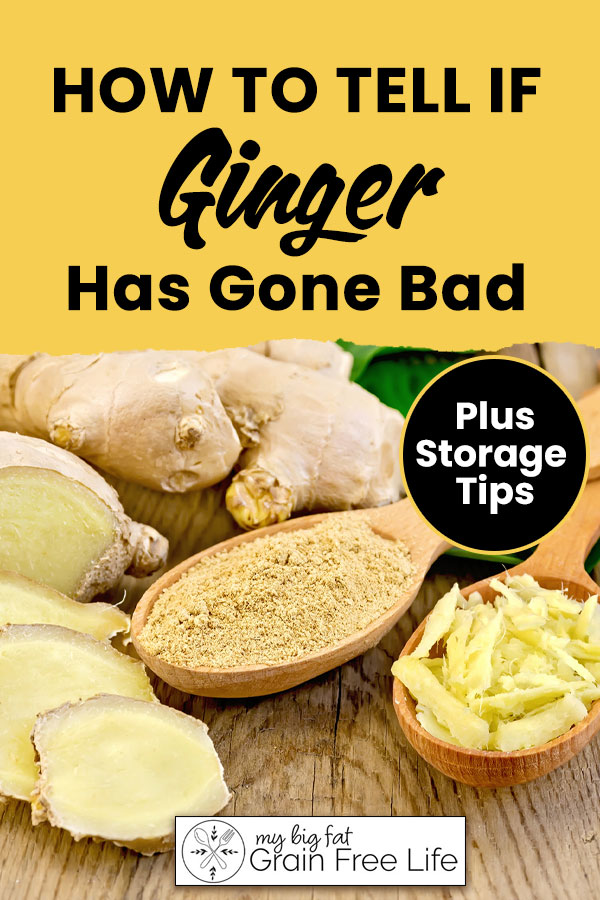
How to Tell if Ginger is Bad
Ginger is a flowering plant with a root that is commonly used as a spice. It’s also used in many folk medicine remedies and is helpful for various aliments.
Ginger is one of the most beneficial spices in the world. It belongs to the Zingiberaceae family, and there’s no surprise that it’s closely related to turmeric. Some sources even consider turmeric a type of ginger.
Both ginger and turmeric have amazing antinflammatory properties. My favorite way to use ginger is in my gingerbread snack cake recipe. I also love it in my AIP chicken wings. It’s super tasty grated in some coconut aminos with garlic and lime as a dip for sushi.
So, how long does fresh ginger last, and does it go bad? Let’s dive right in!
Best Ways to Tell if Ginger is Bad
You might be wondering “Does Fresh Ginger Go Bad?”. Yes, fresh ginger definitley can become rotten. It’s important to be sure your fresh ginger is is good before you use it, or you could become ill.
How to Tell if Fresh Ginger is Bad
There are some simple ways you can tell if ginger is bad. All you need to do is look, feel, and smell it!
Appearance of Ginger
Fresh ginger root should have a firm appearance free from any signs of mold. It should have smooth, unwrinkled skin and the flesh after peeling should be bright yellow.
You want to check for dark spots too. If your ginger has started to turn brown, dark yellow, or the flesh is not bright yellow, there’s a good chance it’s gone bad.
We’ll cover some ways you can store fresh ginger root to make it last longer.
Ginger Root Firmness
Your ginger root should be firm to the touch and not squishy or bendy. If your ginger root is fresh and healthy it will feel firm. If it’s not, toss it, it’s not worth chancing it.
Smell Your Ginger
Ginger has a strong smell to it when it’s fresh. As it starts to go bad the fragrant spicy smell of the ginger root will fade a bit. Most often rotten ginger will not have as strong of a smell as healthy ginger root and may instead give off an unpleasant smell.
Can you cut mold off of ginger?
Once your ginger root has any amount of mold, the nutritional value has already been stripped away. It doesn’t matter if it’s only a small part of the ginger. Now it’s on a road to rottenville – so toss it!
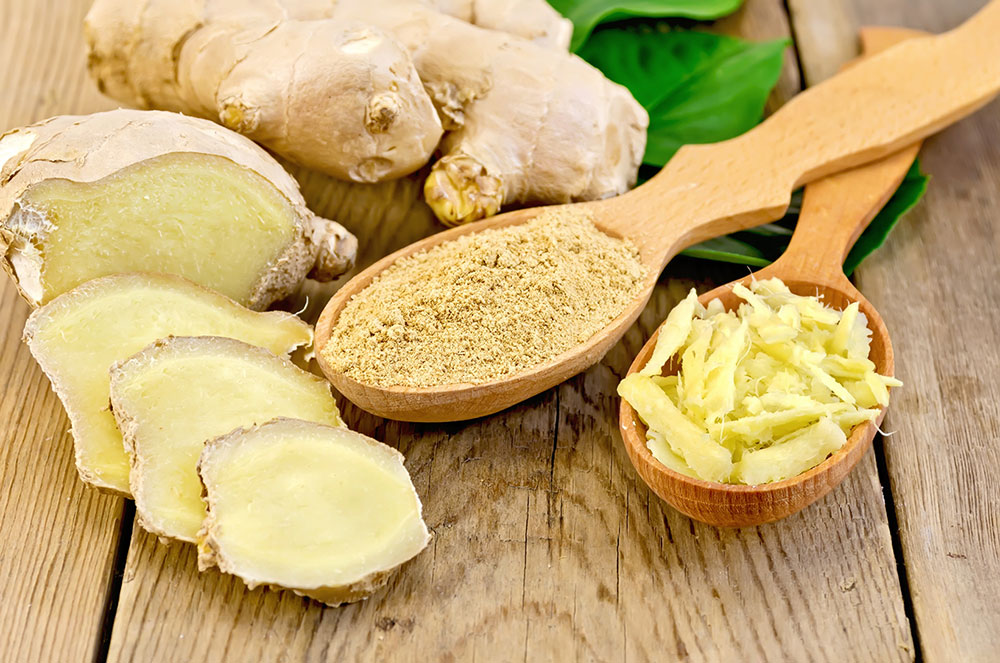
What to Look for When You Buy Ginger
When you are selecting fresh ginger at the grocery store, look for healty roots that are free from wrinkles, dark spots, and are firm to the touch. Even though ginger is knobby, you don’t want to use any part of a ginger root that is bad. Firm ginger has the most flavor.
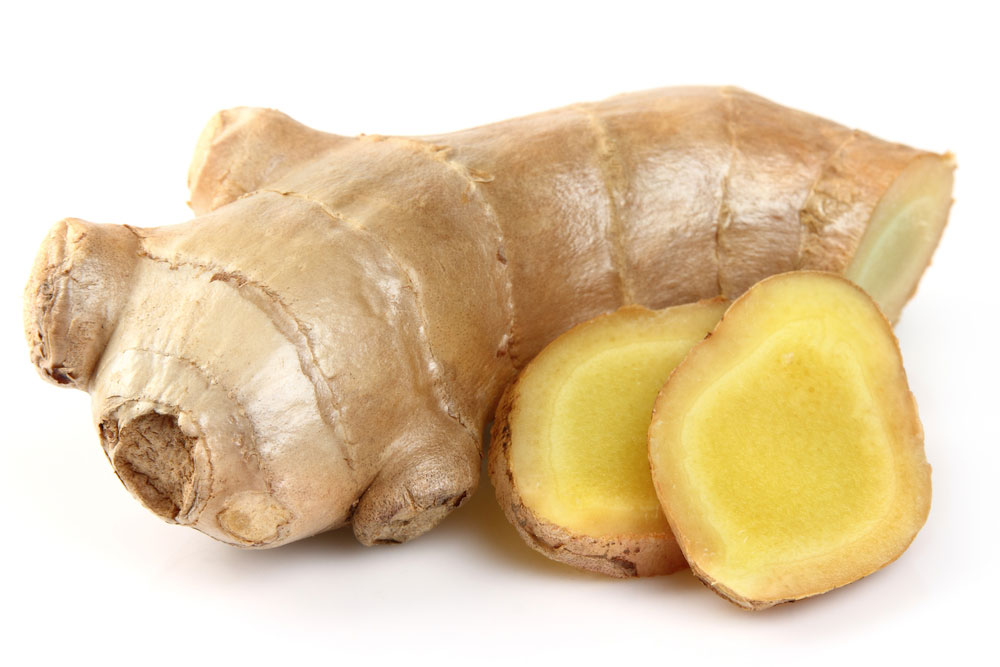
Can Old Ginger Make You Sick?
If your ginger is spoiled in any way mentioned above, you should not eat it. Once your ginger root has become rotten, it produces a toxin called Safrole that can be dangerous for your liver.
If you think your ginger has gone bad you should throw it away and not consume it.
When in doubt, throw it out!
Types of Ginger
There are more than 1,000 different species of ginger found throughout the world, though not all are edible. The three main types are ginger, turmeric and galangal.
You can eat ginger whole, ground, cooked or raw.
You may elso enjy reading about the benefits of ginger root for hair.
Main ginger types:
- Common ginger
- Galangal (a root vegetable)
- Turmeric
- Peacock ginger
- White ginger
Ground Ginger
Ground ginger contains more shogaol, which is where the spiciness comes from.
Fresh Ginger
Fresh ginger has a more pungent flavor than ground ginger. There’s also a bit more sweetness to it. You can grate fresh ginger into dishes and save the leftover piece of ginger in plastic wrap and refrigerate for later use.
Ginger also works great when fermenting it with garlic, making the health benefits of fermented garlic even more pronounced!
The type of ginger you can use for a recipe is most often interchangable. You can find ginger measurement conversions below.
Ginger Paste
Ginger paste is exactly as it sounds – a paste of ginger. You make it into a paste by blending fresh ginger with oil or water. As a paste, ginger is easy to use in recipes. If a recipe calls for 1 TBSP of fresh ginger, you can use 1 TBSP of ginger paste.
You can make ginger paste and freeze it and drop it into soups, stews, broths, and other dishes for a great way to add a nice flavor bomb to it!
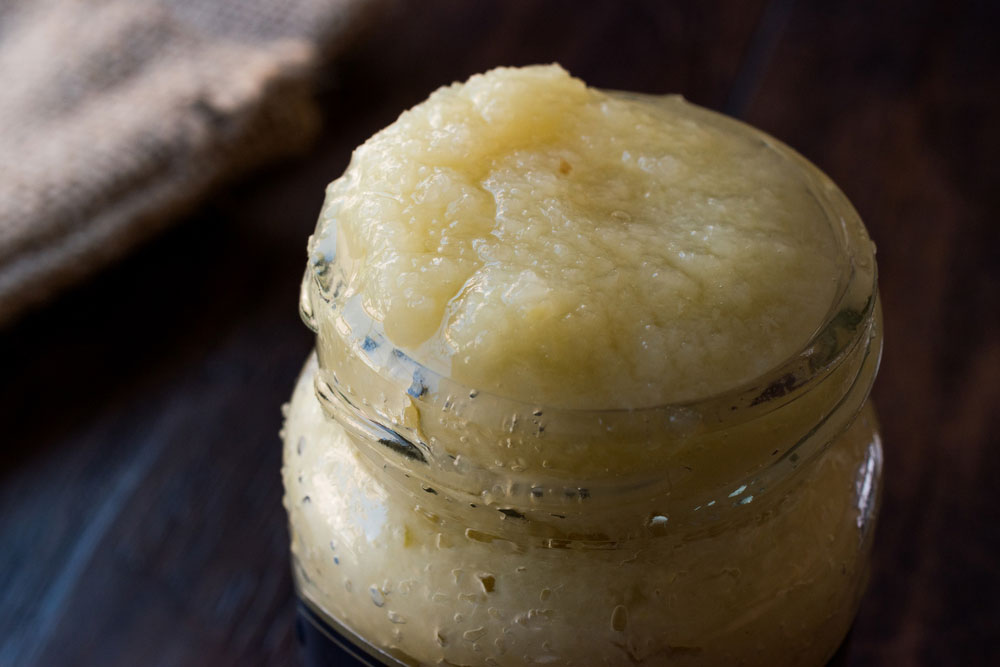
Shelf Life of Ground Ginger
The shelf life of ground ginger or ginger powder is around 1-2 years if stored in a dry place using an airtight container. Just be sure to keep it away from direct sunlight.
Although ginger that is ground can last a long time, it’s good to keep an eye on the expiration date of your spices.
Storing Fresh Ginger
With proper storage you can always be sure to have ginger on hand for any recipe.
The best way to store ginger is in an airtight container or a resealable plastic bag in the crisper section of your refrigerator. If you have stored it properly, it can prolong the shelf life of ginger.
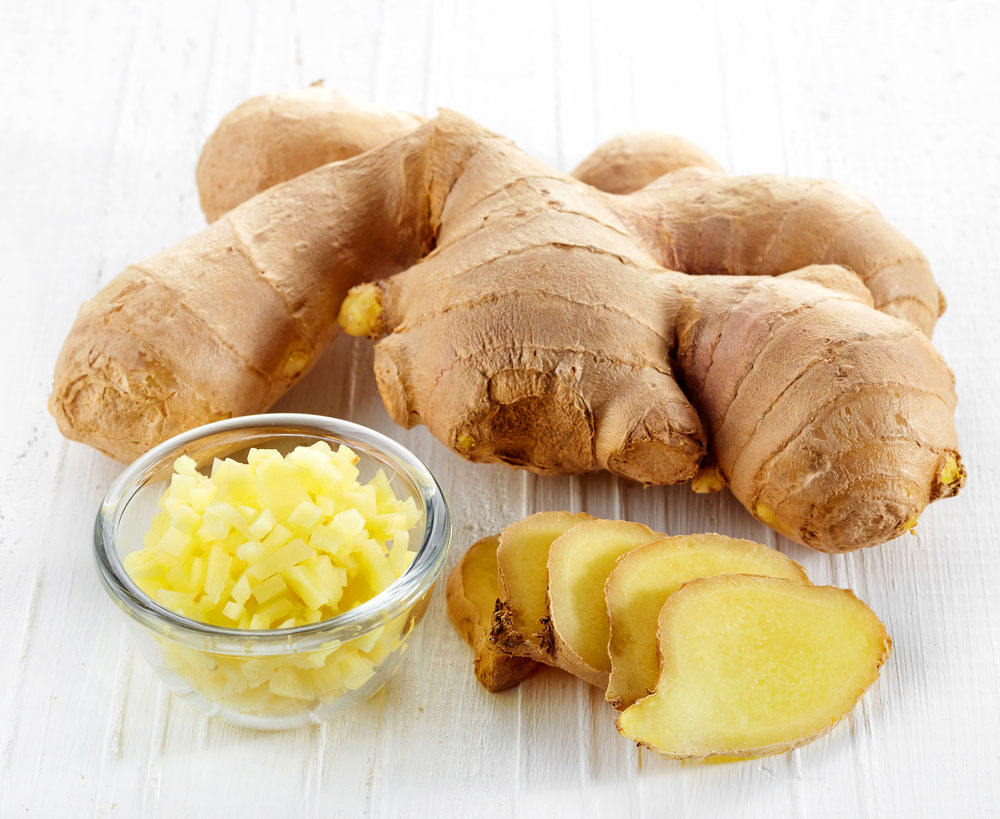
Freezing Ginger
Freezing ginger is a great way to have fresh ginger on hand, and at the same time provides longer shelf life. It prevents moldy ginger that you’ll eventurally get from the fridge.
Just be sure to store your frozen ginger in a resealable freezer bag.
Ginger is super easy to peel and grate when frozen, so you don’t have to worry about thawing it out. Actually, I find that grating frozen ginger is easier than grating fresh ginger!
Fresh Ginger Vs Dried Ginger
Should you use fresh ginger or dried (ground) ginger? Well, it really depends on what you are using it for.
Ground ginger is much more pungent than fresh ginger because the shogaols that are formed during the dehydration process.
Studies show that there are more potent antioxidant and anti-inflammatory properties in dried ginger than in fresh ginger.
Ginger Conversion
Trying to figure out what you types of ginger you can use in recipes? The good news is they are normally all interchangable at different proportions.
- For every 1/4 teaspoon of ground ginger, use 1 tablespoon of fresh ginger.
- For every 1 tablespoon of fresh ginger, use 1/4 teaspoon of ground ginger.
- For every 1 tablespoon of fresh ginger, use 1 tablespoon of ginger paste.
- For every 1 teaspoon of ginger paste, use 1 teaspoon of minced or grated ginger.
- For every 1 teaspoon of grated ginger, use 1 teaspoon of freshly minced ginger root.
- For every 1 teaspoon of ground ginger, use 1 tablespoon of ginger paste.
- For every 1 tablespoon of ginger paste, use 1 inch of fresh ginger.
How Long Does Ginger Last?
Okay, so now you know what to look for in fresh ginger and to toss it if it’s gone bad. So, how long does ginger last?
Fresh Ginger
Refrigerator: 3 weeks | Pantry: 1 week | Freezer: Up to 6 months
Grated Ginger
Refrigerator: 1 week | Pantry: NONE | Freezer: Up to 6 months
Ginger Paste
Refrigerator: Up to 1 month | Pantry: NONE | Freezer: Up to 6 months
Ground Ginger
Ground ginger can last 1-2 years in the cupboard.
Frequently Asked Questions About Ginger
Do you still have questions about ginger? Here are some frequently asked questions that you might find helpful.
How Long Does Ginger Last at Room Temperature?
Unpeeled fresh ginger can last up to a week in your pantry. Just be sure to keep it in a cool place away from direct sunlight.
Should Ginger Root Be Refrigerated?
Ginger root is best kept in the refrigerator, expecially once peeled. Do not leave fresh ginger out after some skin has been peeled away.
Should You Wash Ginger Root?
There’s really no need to wash ginger root since you are going to peel it anyhow. If you don’t want to peel it, then for sure, wash it.
Do You Have to Peel Ginger Root?
Young ginger has really thin skin and doesn’t necessarily need to be peeled. While ginger skin won’t hurt you, it’s normally best in recipes after it’s been peeled. An exception would be a broth that you will strain anyway.
If you just want to make tea, you can slice it and steep it with the skin on.
Final Summary
- Take note of the skin of the ginger to determine if it is still good. If there are moldy parts, brown skin, or wrinkles, you’ve possibly got yourself a rotten ginger root.
- There should be a firm texture with bright yellow flesh and a strong ginger smell.
- You can prolong the life of your ginger by storing it properly in the fridge or freezer.
Sources
1.) Dugasani S., Pichika M.R., Nadarajah V.D., Balijepalli M.K., Tandra S., Korlakunta J.N. Comparative antioxidant and anti-inflammatory effects of [6]-gingerol, [8]-gingerol, [10]-gingerol and [6]-shogaol. J. Ethnopharmacol. 2010;127:515–520. doi: 10.1016/j.jep.2009.10.004. [PubMed] [CrossRef] [Google Scholar][/efn_note]


